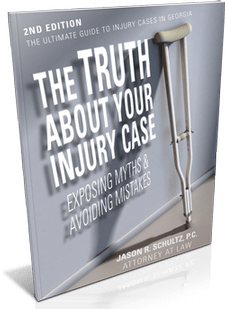 The Consumer Product Safety Commission (CPSC) reports that each year, more than 17,000 people are injured and at least 30 die in this country on elevators and escalators. Most of these incidents involve either children or industry workers.
The Consumer Product Safety Commission (CPSC) reports that each year, more than 17,000 people are injured and at least 30 die in this country on elevators and escalators. Most of these incidents involve either children or industry workers.
Injuries that victims sustain range from abrasions and bruises to serious injuries such as degloving and amputations of fingers, toes, and even entire hands and feet. The most common types of injuries are from entrapment injuries and falls. Those who sustain injuries from defective elevators or escalators may be able to file a claim or lawsuit to recover damages with the help of Attorney Jason Schultz, an elevator injury lawyer in Atlanta.
Table of Contents
Common Elevator & Escalator Hazards
The most common injuries result from entrapments between the front and rear of adjacent escalator steps, between the side of escalator steps and the escalator skirt (the interior sidewall of the escalator), and injuries occurring at the comb plate (the piece with the menacing-looking teeth on the floor at the top and bottom of escalators).
Abdul Shukor, a professor, researcher and trainer for the National Institute for Occupational Safety and Health (NIOSH), explains that the following are some of the most common hazards on elevators.
- Door malfunctions, such as closing with too much force
- Emergency phone malfunction
- Dead alarm batteries
- Problems with alignment that cause the elevators to stop prior to reaching the floor
- Fire hazards, i.e., no fire extinguisher
- Worn cables that are in need of replacing
- Poor maintenance and lack of service
The Legal Reasons to Utilize Only Safe Elevators & Escalators
Manufacturers, maintenance providers, and owners of escalators and elevators have a legal duty of care to patrons. They must take reasonable and necessary steps to ensure their elevators and escalators are safe. For example, some of the duties they are expected to uphold include the following:
- Abiding by all the standards set forth by the American Society of Mechanical Engineers and the American National Standards Institute Escalator Committee
- Consistently using proper warning signs that communicate the severity of potential entrapment injuries
- Ensuring that each escalator step has "painted footprints" or "brightly colored borders”
- Ensure that the escalator design is sound, e.g., it doesn’t have a step tread pattern that creates hazardous pinch points
- Comply with building codes and standards
- Ensure that the teeth on the escalator are properly aligned and that they quickly replace any comb plates with broken teeth
If those in charge of escalators and elevators don’t do their duty to warn adequately and properly maintain the equipment, unsuspecting users can sustain serious injuries and even fatalities – and the responsible party can be held liable for damages in an injury claim. An elevator injury lawyer in Atlanta is the best professional to help hold negligent parties responsible.
Pursuing Compensation for Your Injuries With an Elevator Injury Lawyer
Many escalator and elevator accident victims are children who are smaller and more susceptible to injury when their fingers and toes are the right size to slip into dangerous gaps. Most escalators move along swiftly, about 90 feet per minute, and continue running after they amputate a finger or toe, altering a child's life forever. These serious injuries are preventable if there are adequate warnings, properly designed escalators and competent technicians who regularly perform maintenance inspections and maintenance work.
If you or your child has recently sustained injuries on an elevator or an escalator, you may be entitled to compensation. We encourage you to call The Law Offices of Jason R. Schultz for a case evaluation. Specific and detailed discovery is the recipe for obtaining the maintenance history of a given escalator or elevator as well as to reveal a history of previous injuries. Attorney Schultz is passionate about the well-being of injured Georgians and will vigorously pursue elevator/escalator injury cases to obtain full compensation for all medical expenses, lost wages, pain, and disfigurement.


